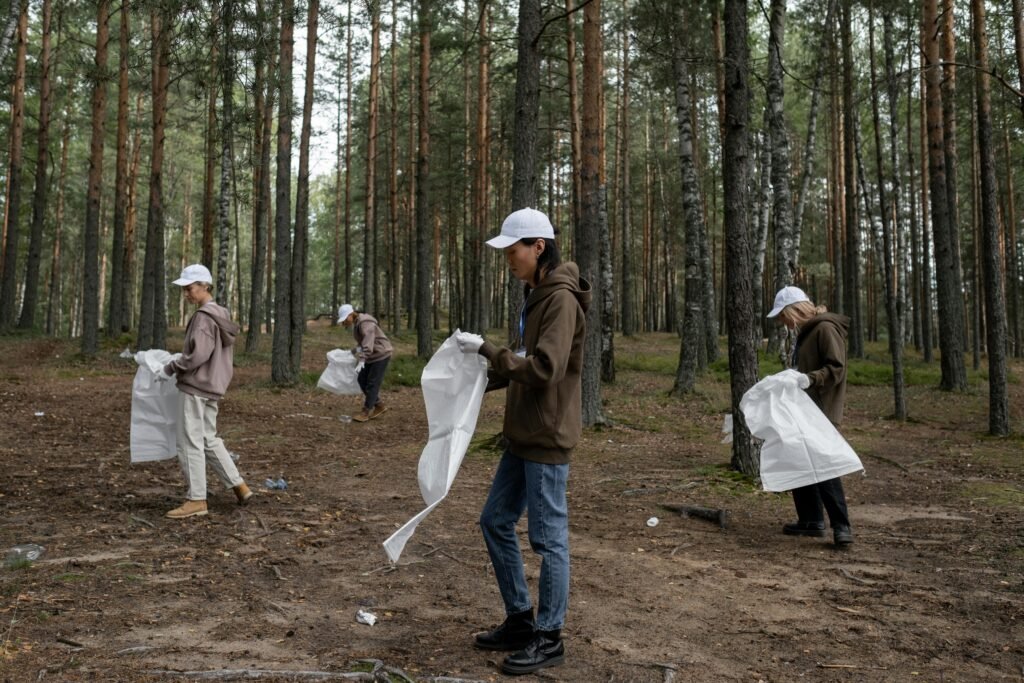Arriving in a new country as an immigrant is both exciting and challenging. Every newcomer brings with them dreams of opportunity, security, and a better life. But settling into a new society involves more than just finding housing or employment—it’s about building connections, finding a sense of belonging, and developing confidence in everyday interactions. One of the most powerful and accessible ways to achieve this integration is through volunteering.
Volunteering is more than an act of charity; it’s a bridge to community, language, and identity. For immigrants, especially those who are still learning English or navigating unfamiliar cultural norms, volunteering can be transformative. Whether you’re helping in a local food bank, supporting a library program, or mentoring other newcomers, volunteering creates opportunities for personal and professional growth.
Why Volunteering Matters for Immigrants

For immigrants and refugees, volunteering provides a space to engage meaningfully with the community, often while learning and practicing English in real-life settings. Unlike formal environments where language barriers can be intimidating, volunteer settings are typically more supportive and flexible. Here’s why volunteering is especially valuable:
- Improves Language Skills: Regular interaction with native speakers and community members provides practical experience in listening, speaking, and using English in real-life contexts.
- Boosts Confidence and Mental Health: Engaging in purposeful work fosters a sense of self-worth and belonging. It reduces isolation, a common issue among new arrivals, and helps you feel valued in your new society.
- Provides Work Experience: Volunteer work can strengthen your résumé, showcase your skills, and demonstrate adaptability and initiative to future employers.
- Builds a Social Network: Volunteers meet people from diverse backgrounds, forming friendships, professional connections, and community ties that ease the settlement process.
- Creates Advocacy Opportunities: Immigrants who volunteer often become advocates for their communities, sharing cultural knowledge and experiences while gaining leadership skills.
How to Find Volunteer Opportunities as a Newcomer
If you’re new to the country and don’t know where to begin, here are practical steps to help you start:
- Research Local Organizations: Start with nonprofit organizations, settlement agencies, food banks, and community centers in your city. Online platforms such as VolunteerMatch.org and Idealist.org list opportunities across various interests and locations.
- Check with Religious and Cultural Centers: Places of worship like churches, mosques, and temples often offer community programs and are welcoming to volunteers, especially newcomers. These spaces are familiar, supportive, and frequently bilingual.
- Visit Libraries and Community Hubs: Your local library or community center is a gateway to community events and programs. Staff can help connect you to relevant volunteer roles or free English conversation clubs.
- Attend Local Events: Festivals, markets, and public workshops are not only fun but also serve as excellent networking grounds. Attending regularly can lead to discovering unlisted volunteer needs or informal ways to contribute.
- Enroll in the Adult Migrant English Program (AMEP): Offered in countries like Australia, AMEP provides free English classes and sometimes offers volunteer pathways for adult learners. It’s an ideal place to develop language skills and get involved with programs tailored to migrants.
- Connect with Immigrant Support Organizations: Nonprofits such as the International Institute of Minnesota, Immigrant Welcome Center (Indianapolis), and World Relief (Chicago) are designed to support newcomers and heavily rely on volunteers. These organizations often offer mentorship roles, admin support, and opportunities to help other immigrants.
- Join Online Platforms: Websites like VolunteerForever.com and Volunteer.com are designed to match users with volunteering roles based on location and interest. These tools can help you find flexible or remote options suited to your availability and comfort level.
How to Get Started as a Volunteer

The volunteer process is generally straightforward and welcoming. Here’s what to expect:
- Application: You’ll likely fill out a form detailing your interests, availability, and background.
- Interview or Orientation: Some organizations offer orientation or interviews to introduce their mission and train you in your role.
- Volunteer Role Matching: Based on your profile, you’ll be matched with roles that fit your skills and interests, whether it’s sorting donations, mentoring, teaching, or helping in the office.
Even if your English isn’t perfect, most organizations will value your willingness to help and grow. Volunteering is often seen as a two-way street—your time is valued, and in return, you gain skills, confidence, and a sense of belonging.
Building Meaningful Connections Through Community Engagement
Making friends and building connections is critical for long-term integration and well-being. Volunteering offers a natural way to meet people and bond over shared goals. Whether through a community garden, a school event, or a cultural festival, you can practice your English, express your identity, and learn about others.
To build strong, lasting connections:
Be proactive: Initiate conversations, ask questions, and show curiosity.
Share your culture: Food, language, and traditions are excellent conversation starters.
Be consistent: Regular involvement in activities helps people remember you and creates opportunities for deeper friendships.
Be open to new experiences: Embrace the diversity of your new environment—it will enrich your journey.

The Personal and Professional Benefits of Volunteering
Personal Development
- Improved self-confidence and emotional well-being
- A sense of purpose and belonging
- Opportunities to explore passions and talents
Professional Development
- Skill-building in teamwork, communication, and problem-solving
- Build your résumé
- Increased language fluency and vocabulary through practice
- Access to job leads and networking opportunities
Many employers highly regard volunteer work as it demonstrates a strong work ethic, adaptability, and community engagement—all qualities that immigrant workers bring in abundance.
How SwiftPass Global Immigration Supports Your Journey
At SwiftPass Global Immigration, we understand that building a new life abroad goes far beyond visas and paperwork. Our mission is to guide you through every step of your migration journey—from navigating legal processes to offering resources that support your settlement, integration, and long-term success. We actively encourage our clients to explore volunteering as a strategic way to build community ties and develop their professional potential. Our team provides not only immigration assistance but also settlement advice, including how to:
- Access English language programs in your area
- Connect with volunteer programs aligned with your skills
- Build a long-term roadmap for career development and personal growth
By choosing SwiftPass Global Immigration, you gain a committed partner who cares about your holistic success, from your visa approval to your thriving future.
Conclusion
Volunteering is a gateway to a better life in your new country. It builds confidence, improves your English, enhances your résumé, and helps you feel truly at home. Whether you’re a skilled professional or a newcomer learning the language, volunteering offers something valuable for everyone.
At SwiftPass Global Immigration, we’re here to support your journey with care, clarity, and expert guidance. Together, let’s help you not just migrate, but thrive.